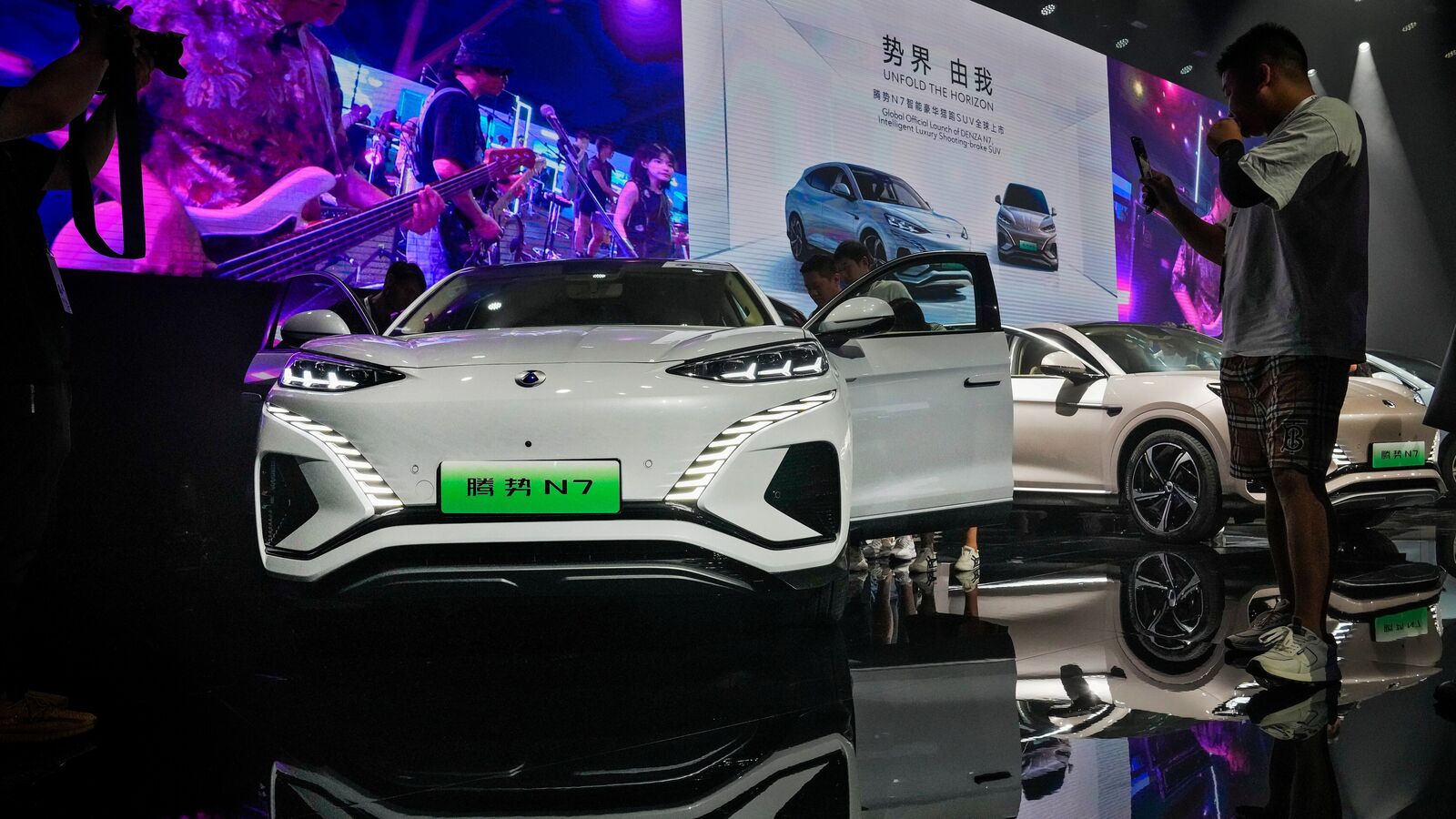Mercedes-Benz CEO, Ola Källenius, has urged the European Union to lower tariffs on Chinese EV imports, arguing that increased competition would ultima
…
Mercedes-Benz CEO, Ola Källenius, has urged the European Union to lower tariffs on Chinese EV imports, arguing that increased competition would ultimately benefit Europe’s carmakers by driving innovation and improving product quality.
Chinese electric vehicles (EVs) have been in the news for a considerable period. Initially praised for their value, many countries are now increasing tariffs on Chinese EVs to dissuade consumers from purchasing them. Ola Källenius, the CEO of Mercedes-Benz, has urged the European Union to reduce tariffs on electric cars imported from China. This plea comes at a time when the European Commission is contemplating raising import duties, following concerns over Beijing’s subsidies for its domestic car industry.
In Källenius’s view, increased competition from Chinese automakers could benefit Europe’s car manufacturers in the long run, leading to the production of better cars. He criticised protectionism, stating that it was “going the wrong way.”
“Don’t raise tariffs. I’m a contrarian, I think go the other way around: take the tariffs that we have and reduce them,” Källenius emphasised in an interview with the Financial Times. He believes that Chinese companies entering the European market is a natural progression of competition, which should be met with better products, technology, and agility. He stressed that this is how a market economy should function, allowing competition to drive innovation and consumer choice.
Also Read : Bed, kitchen and drone: How Chinese EV makers are luring customers with features
The European Commission is currently investigating whether Chinese carmakers are benefiting from subsidies from Beijing, enabling them to offer lower prices on vehicles exported to Europe. This practice has raised concerns among European automakers, particularly French companies like Stellantis and Renault, which lack a significant presence in China.
In contrast, German automakers, heavily reliant on the Chinese market for sales and profits, have expressed apprehension about potential retaliation from Beijing and Chinese consumers. Chinese brands like BYD have been steadily gaining market share from Western incumbents in China, the world’s largest EV market.
Källenius stressed that companies like Mercedes-Benz are not seeking protection but rather want to compete on a level playing field. He defended open markets, citing their role in driving economic growth and lifting millions out of poverty, especially in China.
Currently, Chinese EVs face a 10 per cent tariff when imported to Europe, while European carmakers pay a 15 per cent tariff when exporting to China. This discrepancy has led to most German models sold in China being manufactured in the country.
Källenius emphasised the need for a “level playing field” and urged both sides to focus on building economic win-win situations. He warned against increased protectionism, stating that it would be counterproductive in the long run.
Stellantis and Renault have faced challenges in China compared to their German counterparts, with the French government actively seeking measures against Chinese companies. Carlos Tavares, Stellantis’ CEO, warned that the EU’s car industry, employing roughly 13 million Europeans, could face a fate similar to the continent’s once-vibrant solar panel industry if action is not taken to address Chinese competition.
First Published Date: 14 Mar 2024, 10:23 AM IST

